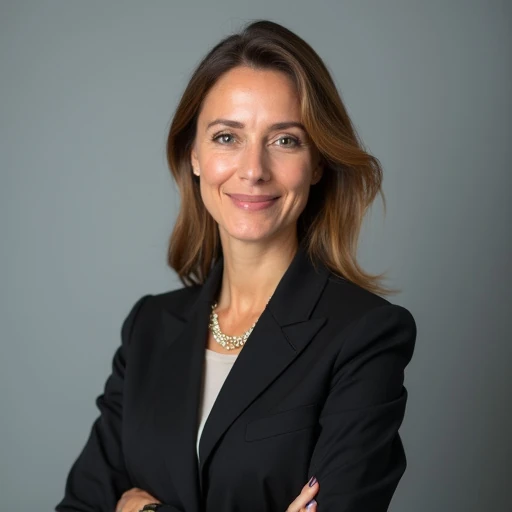A 22-year-old day trader from Tennessee, who reported earning between $30,000 and $90,000 per month, recently sought advice from nationally recognized financial hosts about investing in real estate. Despite his substantial income and debt-free status, the guidance he received prioritized caution and traditional wealth-building principles over aggressive investment strategies.
The young trader, identified as Zach, called into "The Ramsey Show" to ask when he should begin buying properties. The show's co-hosts, Rachel Cruze and George Kamel, advised him to temper his expectations and focus on securing his own housing before venturing into investment real estate, warning that his current income stream may not be sustainable.
Key Takeaways
- A 22-year-old day trader reported monthly earnings ranging from $30,000 to $90,000 through proprietary trading firms.
- Despite his high income and having no debt, he currently rents his home and has approximately $50,000 in savings.
- Financial hosts Rachel Cruze and George Kamel advised him to purchase a primary residence with cash before buying investment properties.
- The hosts urged caution, suggesting his high-risk trading career may not provide stable income long-term.
An Unconventional Financial Position
During the broadcast, Zach explained his unique financial situation, which stands in stark contrast to that of most people his age. He detailed his success in trading futures through proprietary firms, often called prop firms. This model allows traders to use a firm's capital in exchange for a share of the profits.
"Essentially, you use their capital and then you normally get to keep anywhere from 70 to 90% of the profits that you make," Zach stated on the show. He said he began after a $3,000 evaluation and has since achieved significant returns. With his earnings, he has eliminated all his debt, including student loans, and accumulated $50,000 in liquid cash.
His primary question for the hosts was about timing his entry into the real estate market. "I've always wanted to get into real estate," he said. "So I'm trying to figure out when the best time would be to make that move."
A Call for Caution and Stability
The response from hosts Rachel Cruze and George Kamel was one of prudence. They immediately cautioned Zach against moving too quickly into property investment, especially given the volatile nature of his income source.
"I would not count on this gravy train of day trading for too long," Cruze advised. "I would get out while you can when the getting's good, but just know this may not be a five-year career."
This advice underscored a central theme of their guidance: the need to build a stable financial foundation before taking on additional risk. They suggested that Zach's current success, while impressive, should be viewed as an opportunity to secure his long-term financial health rather than a permanent state of affairs.
Understanding Proprietary Trading Firms
Proprietary trading firms provide capital to traders who pass an evaluation process. These traders are not investing their own money but are instead contracted to trade on behalf of the firm. While this model can lead to high returns without significant personal capital risk, the income is often inconsistent and depends entirely on the trader's performance in fluctuating markets.
The Debt-Free Path to Real Estate
Cruze and Kamel emphasized a core principle of their financial philosophy: avoiding debt, particularly for investment properties. They strongly recommended that Zach's first major financial goal should be to purchase his own home, and to do so with cash.
"With real estate, we always say if you're going to go beyond your primary residence, you want to do it with cash," Cruze explained. "That would probably be my goal for you, Zach, honestly, would be to own property yourself—your primary residence—before going and investing and getting a rental home."
This approach directly counters common real estate investment strategies that rely on leverage, or using borrowed money, to acquire properties. The hosts pointed to the risks of overleveraging, with Cruze referencing her father Dave Ramsey's own past financial failure from taking on too much real estate debt.
Key Financial Advice Offered
- Prioritize a Primary Residence: Buy a personal home before acquiring investment properties.
- Pay with Cash: Avoid mortgages for both personal and rental homes to eliminate risk.
- Be Skeptical of Cash Flow: Rental properties may not generate as much income as expected, especially in competitive markets like Middle Tennessee.
- Plan for Career Volatility: Do not assume high trading income will continue indefinitely.
Evaluating Investment Options
When discussing the Middle Tennessee market, where Zach expressed interest, the hosts warned him about miscalculating the profitability of rental properties. "It's not this thing that's like, oh my gosh, it's going to be making me a ton of money," Cruze said, noting that many young investors overestimate potential cash flow.
Flipping vs. Renting
The conversation also touched on the strategy of flipping houses—buying, renovating, and selling properties for a short-term profit. Kamel noted that flips can sometimes offer better immediate returns than rentals because they don't depend on long-term market appreciation, which has been stagnant in recent years.
However, they issued a strong warning about the method. Cruze was adamant that flips should also be funded with cash, calling the use of loans for such ventures "the wrong way to do it." They stressed that while flipping can be profitable, it requires significant capital and expertise to be successful without taking on dangerous levels of debt.
The ultimate recommendation for the 22-year-old trader was to continue saving aggressively. The hosts' playbook was clear: use the high income from day trading to build a large cash reserve, purchase a primary home outright, and only then consider venturing into the world of real estate investing, free from the risks of leverage.





